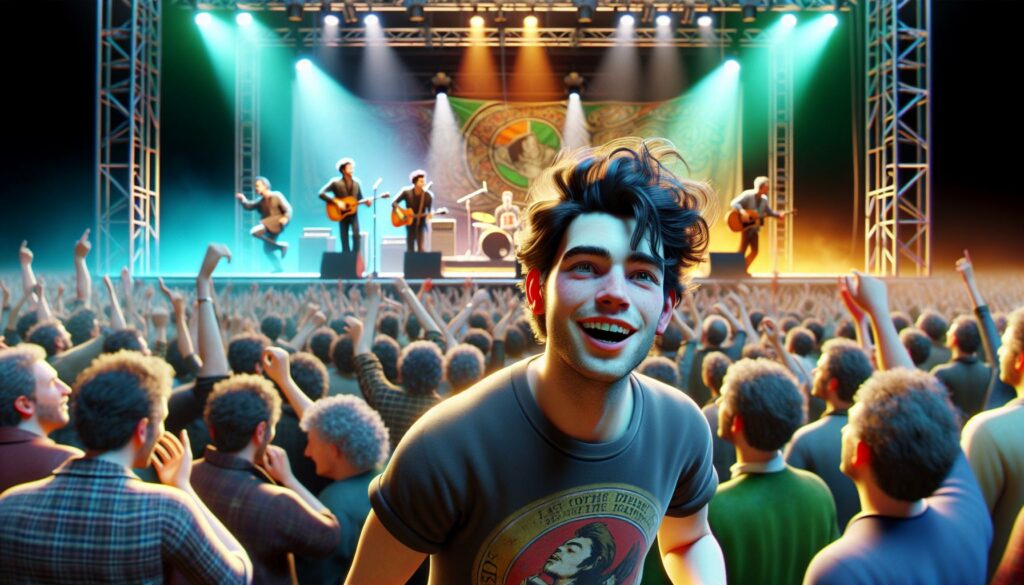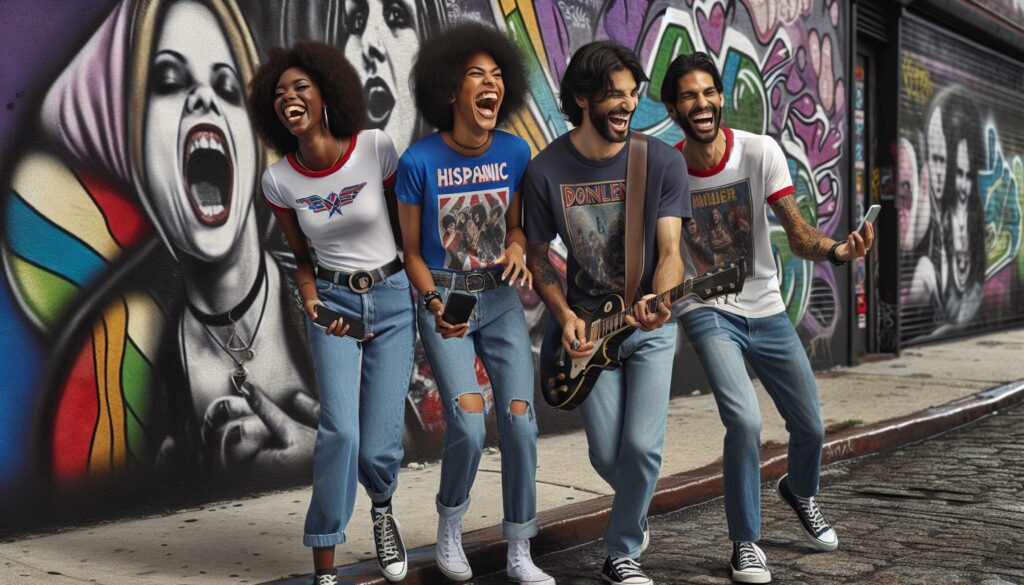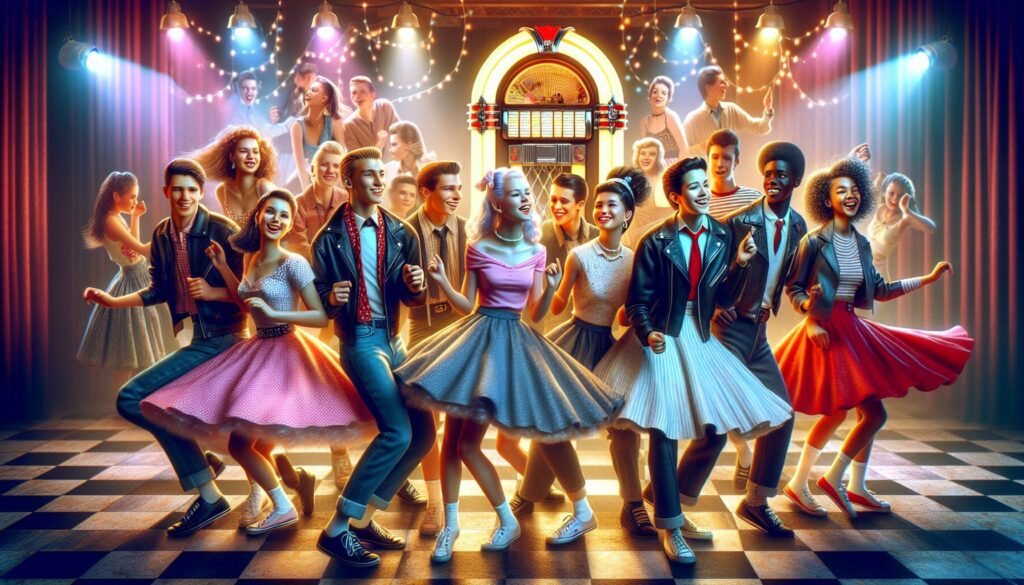Irish rock music has a unique flair that captures the spirit of Ireland while pushing musical boundaries. From the haunting melodies of traditional folk to the electrifying energy of rock, this genre blends rich cultural heritage with modern sounds. Growing up, I was fascinated by how bands like U2 and Thin Lizzy not only dominated the charts but also influenced countless artists worldwide. As I delved deeper into this vibrant scene, I discovered a tapestry of sounds that reflect both the struggles and triumphs of Irish life. The fusion of heartfelt lyrics and powerful instrumentals creates an undeniable connection with listeners. Join me as I explore the evolution of Irish rock music, its iconic bands, and the cultural impact that continues to resonate today.
- Unique Fusion: Irish rock music merges traditional folk melodies with contemporary rock, creating a distinctive sound that reflects Ireland’s cultural heritage.
- Influential Bands: Iconic bands like U2, Thin Lizzy, and The Cranberries have significantly shaped the genre, delivering powerful lyrics and innovative sounds that resonate globally.
- Cultural Commentary: Many Irish rock songs address social and political issues, drawing from Ireland’s complex history, making the music both relatable and impactful.
- Evolution Over Decades: The genre has continuously evolved since the 1960s, incorporating various influences and expanding its appeal through modern artists like Hozier and Snow Patrol.
- Cultural Impact: Irish rock music inspires diverse genres, including punk and pop, influencing both local and international musicians while celebrating its rich musical heritage.
- Key Festivals: Events like Electric Picnic and Galway Arts Festival showcase the ongoing relevance of Irish rock music, promoting both established and emerging artists in the scene.
Irish Rock Music
Irish rock music combines traditional folk melodies with modern rock influences. This unique genre emerged in the 1960s and 1970s, reflecting Ireland’s rich cultural heritage and contemporary musical trends. Notable bands such as U2 and Thin Lizzy exemplify this blend, using vibrant guitar riffs and powerful lyrics to create anthems that resonate worldwide.
Irish rock musicians often incorporate traditional instruments like the mandolin and tin whistle, enriching their sound. The lyrical themes frequently address social and political issues, drawing from Ireland’s complex history. For instance, U2’s “Sunday Bloody Sunday” highlights conflict, while the Frames explore personal relationships and identity.
The genre’s evolution continued into the 1990s and 2000s, with bands like Snow Patrol and The Script achieving international success. Their contributions expand the sonic landscape of Irish rock, appealing to a broader audience while staying true to their roots. This ongoing fusion of styles ensures that Irish rock music maintains its relevance and cultural significance today.
Historical Background

Irish rock music emerged as a distinct genre in the 1960s and 1970s, blending traditional Irish elements with contemporary rock sounds, reflecting the social and cultural landscape of Ireland. This section explores the origins of rock music in Ireland and the key influences that shaped its evolution.
Origins Of Rock Music In Ireland
Rock music in Ireland originated during the social upheaval of the 1960s, influenced by the British rock wave. Early bands like The Clancy Brothers embraced traditional folk while incorporating rock features, attracting audiences across the nation. The arrival of groups such as Them and The Dubliners marked a crucial shift, as they blended rock with traditional Irish folk, setting the stage for future experimentation. By the late 1970s, bands like Thin Lizzy began to define Irish rock, infusing electric guitar riffs with Celtic melodies, showcasing an innovative musical identity.
Key Influences
Key influences on Irish rock music include traditional Irish folk, political themes, and British rock movements. The storytelling and emotional depth in Irish folk music profoundly impacted artists, prompting them to explore contemporary issues through their lyrics. Social and political commentary became prevalent, especially during turbulent times, as seen in U2’s “Sunday Bloody Sunday.” The British rock scene, particularly bands like The Beatles and The Rolling Stones, provided stylistic inspiration, encouraging Irish musicians to experiment with diverse sounds and genres. Throughout the decades, these influences have interwoven, enriching the Irish rock tapestry and pushing the genre forward.
Prominent Irish Rock Bands

Irish rock music features several iconic bands that have made significant contributions to the genre. Their unique sounds and compelling lyrics have left an indelible mark on both national and international music scenes.
U2: Global Icons
U2 stands as one of the most influential rock bands in history. Formed in 1976, the band features Bono, The Edge, Adam Clayton, and Larry Mullen Jr. U2’s blend of atmospheric soundscapes and socially conscious lyrics has resonated worldwide. Their 1987 album, The Joshua Tree, achieved unprecedented success and critical acclaim, highlighting themes of spirituality, human rights, and injustice. Hits like “With or Without You” and “I Still Haven’t Found What I’m Looking For” showcase their ability to merge personal reflection with global issues.
The Cranberries: Flower Power
The Cranberries burst onto the scene in 1990 with a distinctive sound that combined rock with Irish folk influences. Fronted by Dolores O’Riordan, their music captured emotional depth through poignant lyrics and haunting melodies. The band’s debut album, Everybody Else Is Doing It, So Why Can’t We?, includes the iconic track “Linger,” illustrating the band’s knack for blending infectious hooks with introspective themes. Their contributions to rock music continue to resonate, making them a beloved part of Irish rock history.
Thin Lizzy: Pioneers Of Hard Rock
Thin Lizzy revolutionized hard rock in the 1970s, leading the charge with their innovative fusion of rock and traditional Irish music. Founded by Phil Lynott, Brian Downey, and Eric Bell, the band’s hit “The Boys Are Back in Town” exemplifies their energetic sound, characterized by dual guitar harmonies and powerful lyrics. Their albums, such as Jailbreak and Black Rose: A Rock Legend, showcase the band’s impressive range and influence on future generations of rock musicians. Thin Lizzy’s legacy as pioneers of hard rock in Ireland remains enduring and impactful.
Evolution Of The Genre

Irish rock music evolved significantly from its roots, reflecting cultural changes and influences over the decades. Its evolution includes distinct phases marked by core bands and influential styles.
The 1970s And 1980s
The 1970s marked a pivotal decade for Irish rock music, with bands like Thin Lizzy becoming frontrunners in the genre. Their sound blended heavy rock with traditional Irish melodies, resulting in classic tracks like “The Boys Are Back in Town.” Another key figure, Rory Gallagher, showcased incredible guitar skills and blues-infused rock, influencing countless musicians. U2 emerged in the late 1970s, bringing an atmospheric sound that incorporated political themes, evident in songs such as “Sunday Bloody Sunday.” The 1980s saw bands like The Boomtown Rats and Echo & the Bunnymen exploring new wave influences, pushing the boundaries of the genre while maintaining Irish cultural roots.
Modern Developments
In the modern era, Irish rock music continues to thrive and diversify. Bands like The Cranberries gained international acclaim in the 1990s with their unique fusion of rock and folk elements. Their hit “Zombie” addressed social issues while showcasing powerful vocals. Contemporary artists such as Hozier and Picture This reflect the genre’s evolution, incorporating pop and alternative sounds while staying true to their Irish heritage. Festivals like Electric Picnic provide platforms for emerging artists, ensuring the continued relevance and innovation of Irish rock music in today’s music landscape.
Cultural Impact Of Irish Rock Music
Irish rock music profoundly influences various genres and continues to shape cultural narratives. Its rich blend of traditional and contemporary sounds creates a unique musical landscape, resonating far beyond Ireland.
Influence On Other Genres
Irish rock music impacts several genres, particularly folk, punk, and pop. Bands like U2 drove the incorporation of introspective lyrics and atmospheric sounds into pop rock, inspiring global artists. Celtic influences in rock and punk music introduced irreplaceable elements, encouraging bands such as The Pogues and Flogging Molly to merge traditional melodies with energetic rhythms. Contemporary artists, including Ed Sheeran and Hozier, draw from this heritage, showcasing the versatility and depth of Irish rock’s musical elements across genres.
Key Festivals And Events
Key festivals in Ireland celebrate rock music and its cultural significance. Electric Picnic, held annually between 60,000 attendees, features a diverse lineup that includes iconic Irish rock bands and emerging talent, promoting the genre’s evolution. The Galway Arts Festival serves as a platform for celebrating local musicians, integrating rock with visual arts and theatrical performances. Additionally, the Forbidden Fruit festival emphasizes local and international acts, further showcasing Irish rock’s contributions to the global music scene. Through these events, the vibrant energy and cultural importance of Irish rock music continue to thrive. Irish rock music is a vibrant tapestry woven from tradition and innovation. Its ability to blend heartfelt lyrics with powerful instrumentals creates a unique sound that resonates deeply with listeners. The influence of legendary bands like U2 and Thin Lizzy has paved the way for a new generation of artists who continue to push boundaries while honoring their roots. As I explore the ongoing evolution of this genre, I’m reminded of its cultural significance both in Ireland and around the world. The festivals celebrating this music not only highlight emerging talent but also reinforce the enduring legacy of Irish rock. It’s clear that this genre will continue to thrive and inspire for years to come.



